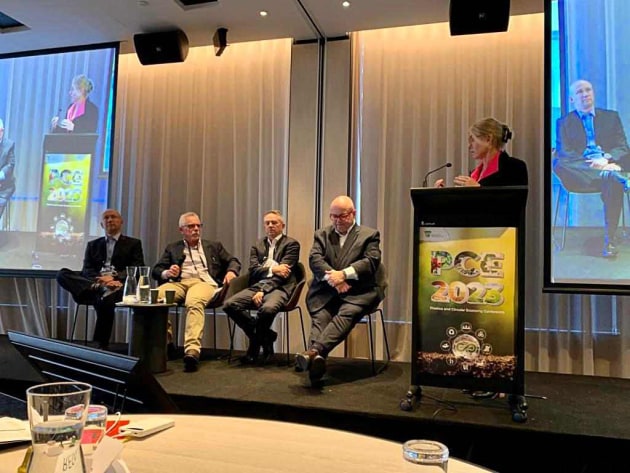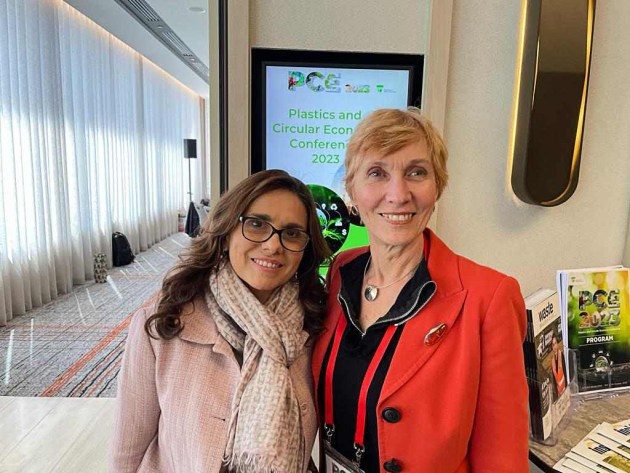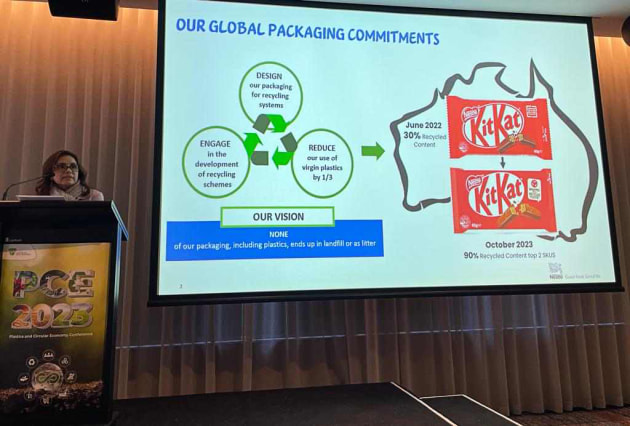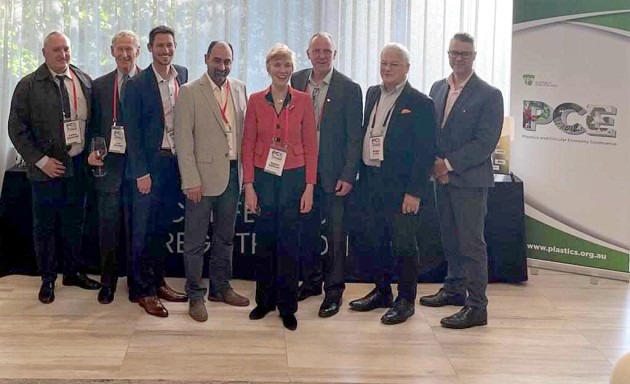The 2023 SPE ANZ Plastics and Circular Economy Conference (PCEC) concluded on 12 October with a series of presentations from global experts on the issues of poor collection and recycling of packaging and plastics, and over-supply of cheap plastic resins from mega-plants.

The conference heard that the similarities for Australia show that this is a global problem, that seriously impacts the capacity of plastic reprocessors, manufacturers and brands to include recycled content.
The conference view was that circularity was just a mirage, unless multiple levers are applied at key points in the plastics supply chain, including introducing landfill fees that target diversion of recyclables, extended producer responsibility (EPR), and recycled content requirements.
Over three days, the packed audience for PCEC 2023 delved into critical issues to improve circularity and lower greenhouse gas (GHG) emissions.
Deep dive presentations also covered recycled content and green procurement programs, stewardship and EPR, targets for packaging and products, energy and GHG emission transitions, and improved design for recyclability.

"There is no doubt that there is a keen desire for robust targets that are enforceable, for mandatory measures, away from just relying on voluntary. We can do that to start with, but then we would need to bridge the gap, and move beyond the tipping point," Helen Millicer, conference curator, told PKN.
"An astonishing finding early on in the conference is that of all the jurisdictions in the world, Australia and Europe are probably the most likely to be able to reach circularity in plastics.
"That is because we are an island nation, we have one set of laws and rules, we have a fairly robust economy, we have wealth and capacity, and we have the resin and the supply chain here.
"So, we are in a Goldilocks place, if you want to call it that, for us in Australia to reach something that most other nations would dream of. And to have government people in the room, as well as key captains of industry – it’s really fantastic for us to be able to open people’s eyes to that and see that we can plan for that future."
The Conference showed a diverse sector, with greater unity and clarity on pathways forward than in 2022. Then, the Conference attendees were frustrated at lack of vision, strategy and movement on policies and programs that inhibit innovation, innovation and leadership.

But this year the mood and presentations were more positive for specific actions to be pursued, to enable circularity and low emission future.
"I think people are inspired and energised. We’ve tackled some difficult topics, and I think we’ve seen some great outcomes from the conference," said Millicer.
"We have had an extraordinary number of people attend, and the speakers from around the world – from the US, Europe and Australia – have been outstanding.
"I think there’s been a universal agreement amongst the people the room, that while we have done some really good things, that is not at all sufficient. Collectively and collaboratively, all of us - governments, industry, community, civil society and industry groups - must work together to plan that future."
A summary of the Conference has been published by SPE A-NZ and is available online here.
The Conference featured global experts inspiring and contrasting with actions in Australia. This included New Zealand, Netherlands, the US and Asia. These presentations and recordings are available to participants.






